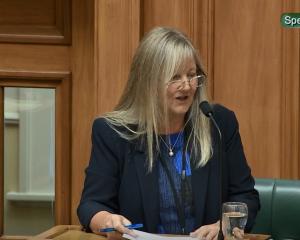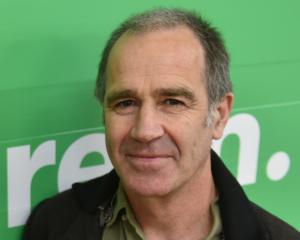Dr Edwards believes Dunedin South MP Clare Curran could be ''vulnerable'' because of a poor performance in the party vote in the former Labour stronghold.
Contacted yesterday, an indignant Ms Curran said Dr Edwards was being ''a bit mischievous'', and believes she has nothing to fear from the new regime.
''I think he's talking through a hole in his head,'' she said.
Mr Little is expected to rejuvenate the caucus, which the party failed to do in the past six years.
Pressure may be on MPs who won the electorate vote in safe seats but lost the party vote - crucial for winning elections.
Labour lost the party vote in Dunedin South and Dunedin North, the latter only once special votes were counted.
''I think there'll be more pressure on her than ever before to step up.
''There will be a lot of attention now on the record of all MPs in winning the party vote,'' Dunedin North MP David Clark would not face pressure, as he was seen as having potential.
While Mr Little appeared mild-mannered, his reforming of the EPMU showed he was capable of shaking up an organisation, Dr Edwards said.
A straight talker, Mr Little was not as involved in ''game playing'' as most politicians, Dr Edwards said.
''He doesn't appear to owe anyone anything.''
Both Dunedin Labour MPs supported Wellington Central MP Grant Robertson for the leadership.
''This will be the term in which Labour does rejuvenate. Some of the old timers and dead wood will be pressured to step up or step out.''
Dr Edwards expected ''effective forced retirements'' of some MPs during the parliamentary term.
He believed Mr Little would retain ''hard line'' Matt McCarten as chief of staff to help reform the party.
''[Mr McCarten's] quite sensibly kept a very low profile [since the election].''
Hired by former leader David Cunliffe as a ''strong man'', Mr McCarten did a good job, but Mr Cunliffe was less willing to shake up the party than his successor would be.
''The lessons from David Cunliffe's takeover of the leadership was that he attempted not to have any blood spilt, and in the end it was probably to his detriment.''
Ms Curran said while she gave Mr Robertson her first preference, she liked and respected Mr Little, and considered him a friend.
''I think it's far too soon for that discussion to be held [about MP retirements] and I think it's very mischievous for Bryce to be raising that at this time. That's putting too much pressure on a new leader who needs to have a team united around him.''
When contacted, Dr Clark said Mr Little was a good listener, an important trait in a leader.
Mr Little would have the full support of MPs: ''There's a definite mood in the caucus that we can't afford to change leaders as often as we have''.
He had the advantage of coming to the leadership with a ''reasonably blank slate''.
''His challenge will be to define his own style before it is defined for him.''
Asked if Mr Little was likely to make MPs work harder, Dr Clark said Labour's problem was a perception of instability, rather than lack of hard work.












